Reading List
Bailit Health staff have compiled a list of influential and highly recommended reading. Check back often for updates
Currently Reading

Written by David Brooks
Summary:
Driven by his trademark sense of curiosity and his determination to grow as a person, Brooks draws from the fields of psychology and neuroscience and from the worlds of theater, philosophy, history, and education to present a welcoming, hopeful, integrated approach to human connection. How to Know a Person helps readers become more understanding and considerate toward others, and to find the joy that comes from being seen. Along the way it offers a possible remedy for a society that is riven by fragmentation, hostility, and misperception. The act of seeing another person, Brooks argues, is profoundly creative: How can we look somebody in the eye and see something large in them, and in turn, see something larger in ourselves? How to Know a Person is for anyone searching for connection, and yearning to be understood.
Previously Read
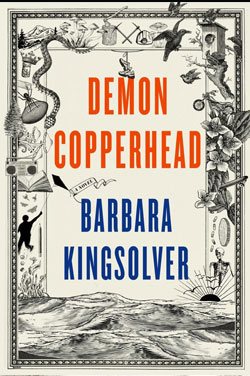
Written by Barbara Kingsolver
Summary:
Set in the mountains of southern Appalachia, this is the story of a boy born to a teenaged single mother in a single-wide trailer, with no assets beyond his dead father's good looks and copper-colored hair, a caustic wit, and a fierce talent for survival. In a plot that never pauses for breath, relayed in his own unsparing voice, he braves the modern perils of foster care, child labor, derelict schools, athletic success, addiction, disastrous loves, and crushing losses. Through all of it, he reckons with his own invisibility in a popular culture where even the superheroes have abandoned rural people in favor of cities.
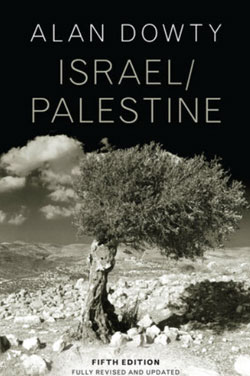
Written by Alan Dowty
Summary:
Alan Dowty demystifies the conflict by putting it in broad historical perspective, identifying its roots, and tracing its evolution up to the current impasse. His account offers a clear analytic framework for understanding transformations over time, and in doing so, punctures the myths of an "age-old" conflict with an unbridgeable gap between the two sides. Rather than simply reciting historical detail, this book presents a clear overview that serves as a road map through the thicket of conflicting claims.
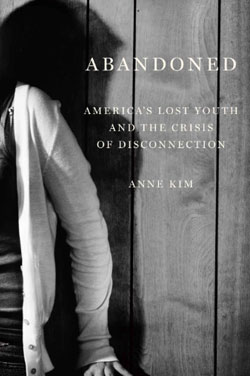
Written by Anne Kim
Summary:
Author Anne Kim skillfully weaves heart-rending stories of young people navigating early adulthood alone, in communities where poverty is endemic and opportunities almost nonexistent. She then describes a growing awareness―including new research from the field of adolescent brain science―that "emerging adulthood" is just as crucial a developmental period as early childhood, and she profiles an array of unheralded programs that provide young people with the supports they need to achieve self-sufficiency.
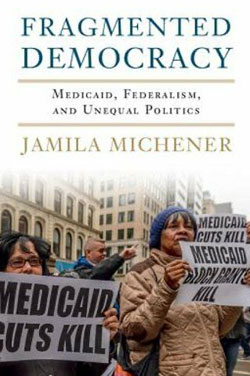
Written by Jamila Michener
Summary:
Medicaid is the single largest public health insurer in the United States, covering upwards of 70 million Americans. Crucially, Medicaid is also an intergovernmental program that yokes poverty to federalism: the federal government determines its broad contours, while states have tremendous discretion over how Medicaid is designed and implemented. Where some locales are generous and open handed, others are tight-fisted and punitive. In Fragmented Democracy, Jamila Michener demonstrates the consequences of such disparities for democratic citizenship. Unpacking how federalism transforms Medicaid beneficiaries' interpretations of government and structures their participation in politics, the book examines American democracy from the vantage point(s) of those who are living in or near poverty, (disproportionately) Black or Latino, and reliant on a federated government for vital resources.
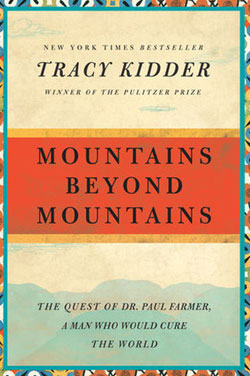
Written by Tracy Kidder
Summary:
In medical school, Paul Farmer found his life´s calling: to cure infectious diseases and to bring the lifesaving tools of modern medicine to those who need them most. Kidder´s magnificent account takes us from Harvard to Haiti, Peru, Cuba, and Russia as Farmer changes minds and practices through his dedication to the philosophy that “the only real nation is humanity.” At the heart of this book is the example of a life based on hope and on an understanding of the truth of the Haitian proverb “Beyond mountains there are mountains”—as you solve one problem, another problem presents itself, and so you go on and try to solve that one too.
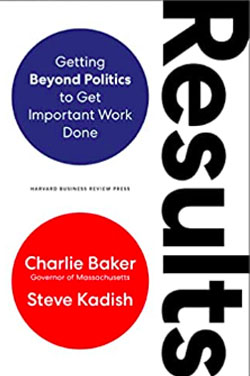
Written by Charlie Baker and Steve Kadish
Summary:
Distilled into a four-step framework, Results is the much-needed implementation guide for anyone in public service, as well as for leaders and managers in large organizations hamstrung by bureaucracy and politics. With a broad range of examples, Baker, a Republican, and Kadish, a Democrat, show how to move from identifying problems to achieving results in a way that bridges divides instead of exacerbating them. They show how government can be an engine of positive change and an example of effective operation, not just a hopeless bureaucracy.
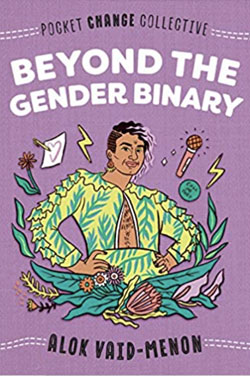
Written by Alok Vaid-Menon
Summary:
In Beyond the Gender Binary, Alok Vaid-Menon challenges the world to see gender not in black and white, but in full color. Taking from their own experiences as a gender-nonconforming artist, they show us that gender is a malleable and creative form of expression.
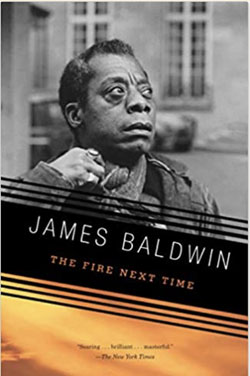
Written by James Baldwin
Summary:
A collection of essays written on the occasion of the centennial of the Emancipation Proclamation, that exhort Americans, both black and white, to attack the terrible legacy of racism that shaped America in the mid-twentieth century.
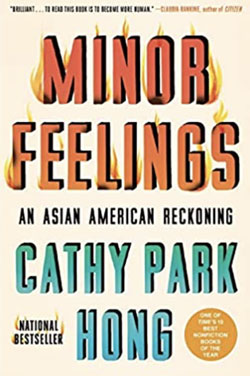
Written by Cathy Park Hong
Summary:
Minor Feelings: a Reckoning on Race and the Asian Condition is an essay collection published in 2020 by the Korean American poet and academic Cathy Park Hong. Across seven autobiographical essays, Hong explores numerous facets of the Asian American experience in the United States, touching on structural racism, cultural appropriation, and media depictions of Asian Americans. - (SuperSummary.com)
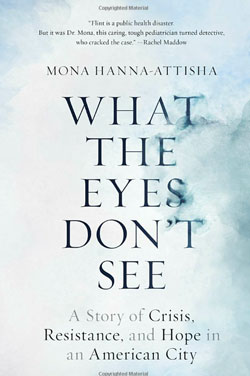
Written by Mona Hanna Atisha
Summary:
What the Eyes Don’t See is a riveting account of a shameful disaster that became a tale of hope, the story of a city on the ropes that came together to fight for justice, self-determination, and the right to build a better world for their—and all of our—children. - (Amazon.com)
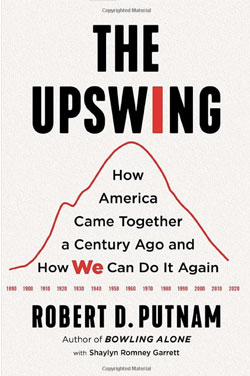
Written by Robert Putnam
Summary:
In a sweeping overview of more than a century of history, drawing on his inimitable combination of statistical analysis and storytelling, Robert Putnam analyzes a remarkable confluence of trends that brought us from an “I” society to a “We” society and then back again. He draws inspiring lessons for our time from an earlier era, when a dedicated group of reformers righted the ship, putting us on a path to becoming a society once again based on community. - (Amazon.com)

Written by Ibram X. Kendi
Summary:
From the National Book Award–winning author of Stamped from the Beginning comes a groundbreaking approach to understanding and uprooting racism and inequality in our society—and in ourselves. “Kendi dissects why in a society where so few people consider themselves to be racist the divisions and inequalities of racism remain so prevalent. How to Be an Antiracist punctures the myths of a post-racial America, examining what racism really is—and what we should do about it.” - (TIME Magazine)
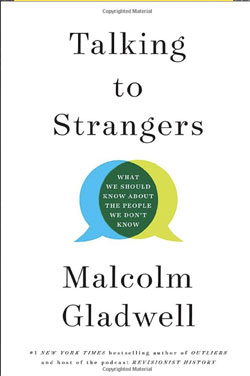
Written by Malcolm Gladwell
Summary:
Malcolm Gladwell, host of the podcast Revisionist History and author of The Tipping Point, Blink, What the Dog, and the #1 New York Times bestseller Outliers, offers a powerful examination of our interactions with strangers — and why they often go wrong.
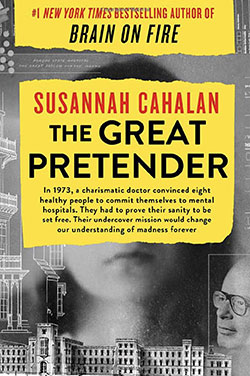
Written by Susannah Cahalan
Summary:
In 1973, a charismatic Stanford psychologist named David Rosenhan and seven other people--sane, healthy, well-adjusted members of society--went undercover into asylums around America to test the legitimacy of psychiatry´s labels. Forced to remain inside until they'd "proven" themselves sane, all eight emerged with alarming diagnoses and even more troubling stories of their treatment.
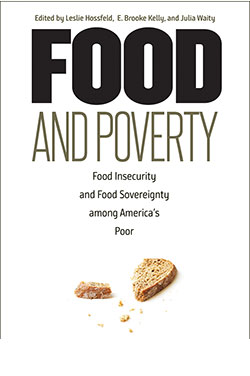
Written by Leslie Hossfeld, E. Brooke Kelly, and Julia Waity
Summary:
This book assesses the complex relationship between food and poverty, and the factors influencing food insecurity and food sovereignty for America’s poor.
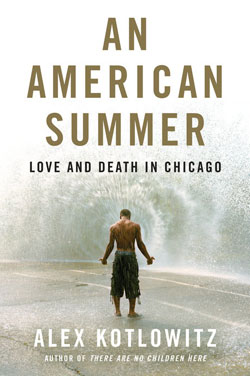
Written by Alan Kotlowitz
Summary:
The numbers are staggering: over the past twenty years in Chicago, 14,033 people have been killed and another roughly 60,000 wounded by gunfire. What does that do to the spirit of individuals and community? Drawing on his decades of experience, Alex Kotlowitz set out to chronicle one summer in the city, writing about individuals who have emerged from the violence and whose stories capture the capacity – and the breaking point – of the human heart and soul.
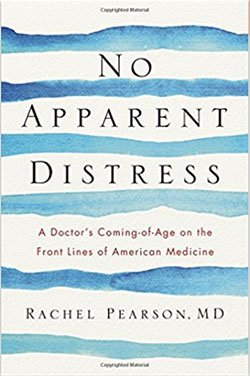
Written by Rachel Pearson, M.D.
Summary:
Dr. Pearson writes about her medical training at the University of Texas Medical Branch and her experience at a free clinic in Galveston, Texas. She examines the safety–net health system in Galveston and issues facing those who are sick, poor and lack health insurance.
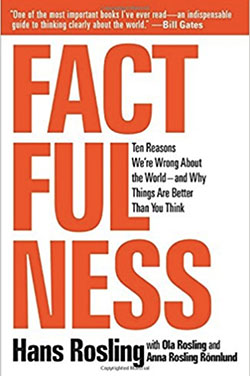
Written by Hans Rosling
Summary:
In Factfulness, Professor of International Health and global TED phenomenon Hans Rosling reveals the ten instincts that distort our perspective–from our tendency to divide the world into two camps (usually some version of us and them) to the way we consume media (where fear rules) to how we perceive progress (believing that most things are getting worse).
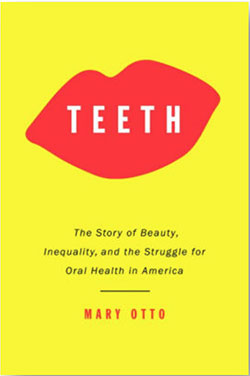
Written by Mary Otto
Summary:
Teeth takes readers on a disturbing journey into America's silent epidemic of oral disease, exposing the hidden connections between tooth decay and stunted job prospects, low educational achievement, social mobility, and the troubling state of our public health.
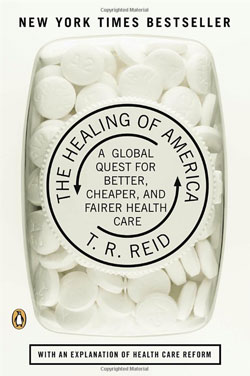
Written by T.R. Reid
Summary:
Bringing to bear his talent for explaining complex issues in a clear, engaging way, New York Times bestselling author T. R. Reid visits industrialized democracies around the world--France, Britain, Germany, Japan, and beyond--to provide a revelatory tour of successful, affordable universal health care systems.
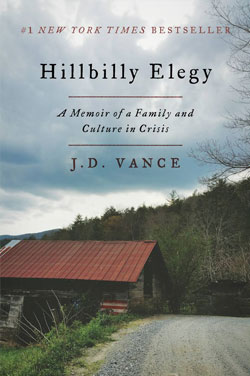
Written by J.D. Vance
Summary:
From a former marine and Yale Law School graduate, a powerful account of growing up in a poor Rust Belt town that offers a broader, probing look at the struggles of America’s white working class. The decline of this group, a demographic of our country that has been slowly disintegrating over forty years, has been reported on with growing frequency and alarm, but has never before been written about as searingly from the inside. J. D. Vance tells the true story of what a social, regional, and class decline feels like when you were born with it hung around your neck.
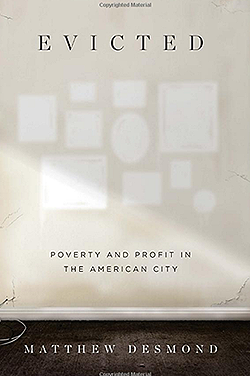
Written by Matthew Desmond
Summary:
Evicted explores the stories of tenants and landlords in the poorest areas of Milwaukee during 2008 and 2009. Through both personal stories and data, Desmond proves that eviction undermines self, family, and community, bearing down disproportionately hard on women with children.
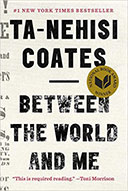
Written by Ta–Nehisi Coates
Summary:
(School Library Journal) In a series of essays, written as a letter to his son, Coates confronts the notion of race in America and how it has shaped American history, many times at the cost of black bodies and lives. Thoughtfully exploring personal and historical events, from his time at Howard University to the Civil War, the author poignantly asks and attempts to answer difficult questions that plague modern society.
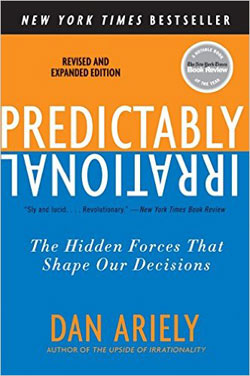
Written by Dan Ariely
Summary:
In a series of illuminating, often surprising experiments, MIT behavioral economist Dan Ariely refutes the common assumption that we behave in fundamentally rational ways. Blending everyday experience with groundbreaking research, Ariely explains how expectations, emotions, social norms, and other invisible, seemingly illogical forces skew our reasoning abilities.
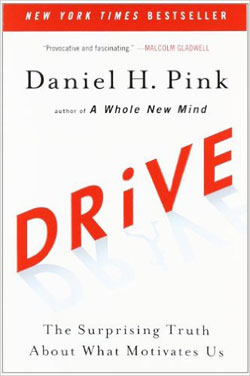
Written by Daniel H. Pink
Summary:
Most people believe that the best way to motivate is to use rewards like money, but according to Daniel
Pink´s provocative and persuasive book Drive – The Surprising Truth About What Motivates Us, most people are make a mistake thinking that external rewards are the best way to motivate. He suggests that the secret to high performance and satisfaction at work, at school, and at home consists of three pillars: the deeply human need to direct our own lives, to become better at things that matter to us, and to do something meaningful for ourselves and the world.
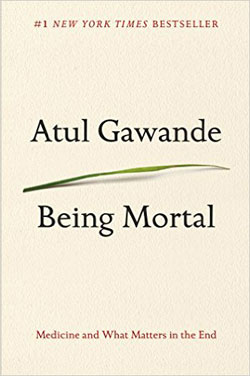
Written by Atul Gawande
Summary:
In Being Mortal, bestselling author Atul Gawande tackles the hardest challenge of his profession: how medicine can not only improve life but also the process of its ending.
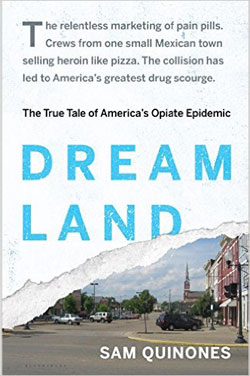
Written by Sam Quinones
Summary:
Award–winning journalist Sam Quinones combines thorough research with superlative narrative skills to produce a horrifying but compulsively readable book about opiate addiction in the United States.
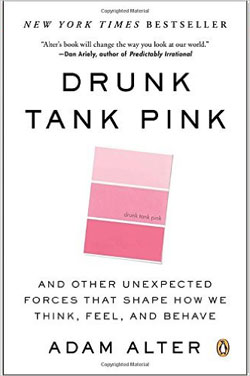
Written by Adam Antler
Summary:
A revelatory look at how our environment unconsciously yet dramatically shapes the judgments and decisions we
make every day.
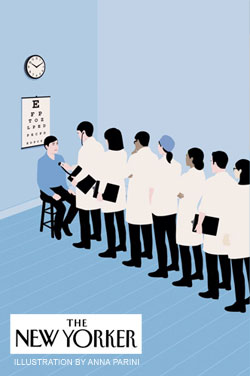
Article written by Atul Gawande and Published in The New Yorker
Summary:
An avalanche of unnecessary medical care is harming patients physically and financially. What can we do about it?
e-Newsletter Sign Up
Receive periodic updates regarding new publications, speaking engagements and noteworthy events in our e–newsletter.